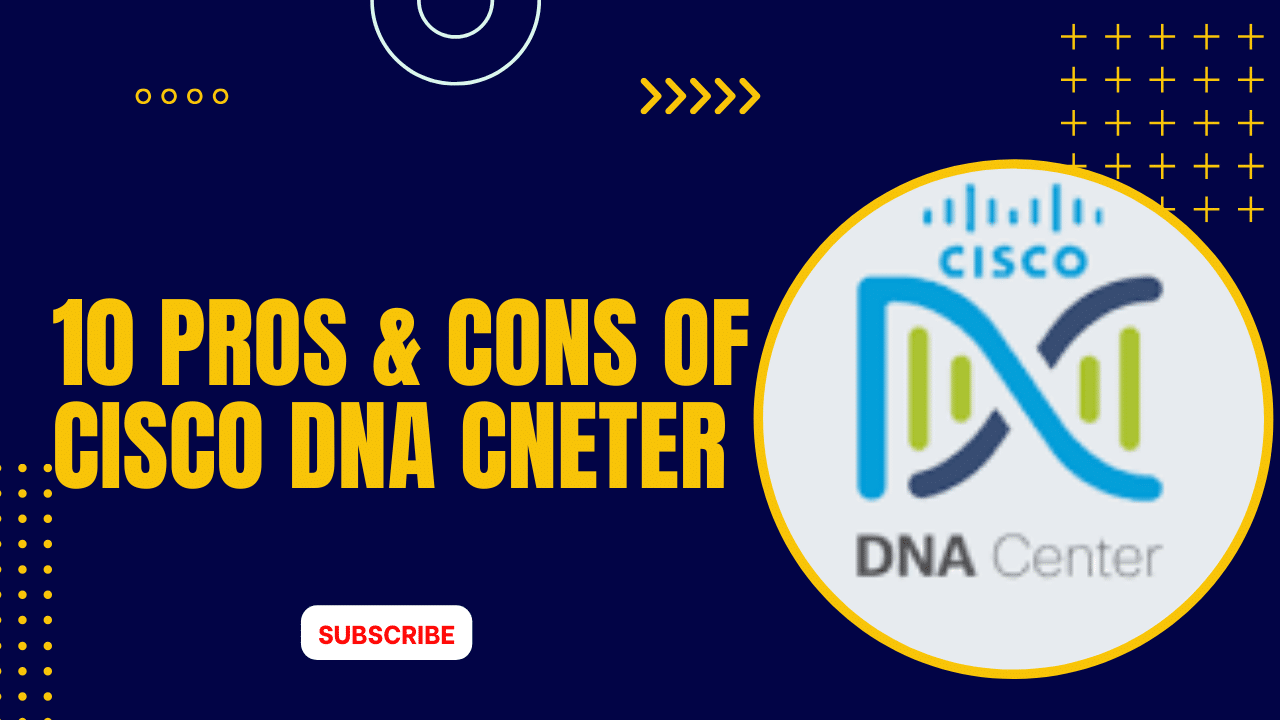DNA Center, or Cisco DNA Center, is a network management and automation platform designed by Cisco to simplify and streamline network operations. It offers a range of features and capabilities, but like any technology, it has its pros and cons. Here are 10 of each:
Pros:
- Centralized Network Management: DNA Center provides a centralized dashboard for managing network devices, making it easier to monitor and control your network infrastructure.
- Automation: It offers robust automation capabilities, allowing you to automate repetitive tasks and reduce manual configuration errors.
- Policy-Based Networking: DNA Center enables policy-based network provisioning, making it simpler to enforce security and access policies across the network.
- Analytics and Insights: It provides powerful analytics tools that can help you identify and resolve network issues quickly and optimize network performance.
- Security Integration: DNA Center integrates with Cisco’s security solutions, helping you enforce security policies and respond to threats more effectively.
- Scalability: It can scale to support large and complex networks, making it suitable for enterprises and service providers.
- User-Friendly Interface: The user interface is designed to be intuitive and user-friendly, making it easier for network administrators to manage the network.
- Software-Defined Networking (SDN) Support: DNA Center supports SDN, allowing you to program and control network behavior through software.
- Integration with Third-Party Tools: It offers integration options with third-party applications and tools, enhancing its flexibility and functionality.
- Comprehensive Network Visibility: DNA Center provides deep visibility into network traffic and device health, helping you troubleshoot issues and make informed decisions.
Cons:
- Cost: DNA Center can be expensive to implement, especially for small or budget-conscious organizations.
- Complexity: The platform’s advanced features can be complex to set up and configure, requiring skilled network administrators.
- Vendor Lock-In: Using DNA Center may tie you to Cisco’s ecosystem, making it challenging to switch to other network vendors in the future.
- Training Required: Network administrators may need training to fully utilize DNA Center’s capabilities, adding to the cost and time investment.
- Compatibility Issues: It may not seamlessly integrate with legacy network devices or non-Cisco equipment, requiring additional workarounds or upgrades.
- Resource Intensive: DNA Center can be resource-intensive, both in terms of hardware requirements and network bandwidth.
- Initial Setup Complexity: Setting up DNA Center for the first time can be a complex and time-consuming process.
- Dependence on Cisco Hardware: To leverage all of DNA Center’s features, you may need to invest in specific Cisco hardware, which can be costly.
- Ongoing Maintenance: Like any complex software platform, DNA Center requires regular updates and maintenance to ensure optimal performance.
- Security Concerns: Centralized network management platforms like DNA Center can be attractive targets for cyberattacks, making security a critical concern.
